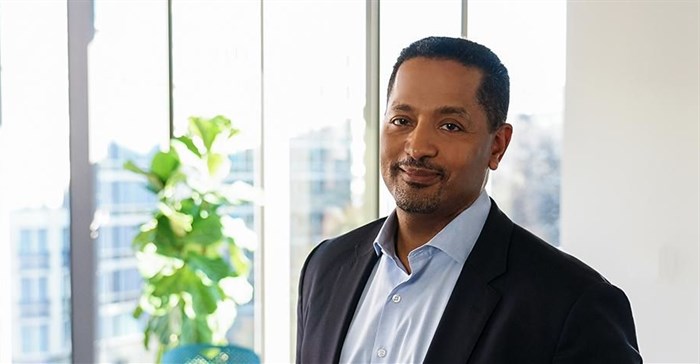Protecting the identity of Africans in a common digital market

As Africa’s economy moves online, so do the people who engage with it. And in this digital age, we need a modern way of proving that we are who we say we are, establishing trust, and transacting from afar. Increasingly, we will access a common digital market with our “digital identities”, often via a finger scan or a digital wallet.
The African Union (AU) has recently recognised digital identification systems as essential infrastructure to unlock access to profound new social and economic opportunity, such as education, employment, financial services, mobile communication, travel, and voting. Sixty percent of Africans believe their governments will introduce new or revamped identity systems in the next two years, in part to support the African Continental Free Trade Area (AfCFTA) and to deliver public goods and services more effectively.
Empowering or exploiting Africans
Studies show that Africa stands more to gain from the adoption of digital identity than any other region in the world; it also risks a lot if the systems are designed without safeguards. How we treat our identity data will determine if digital identity empowers or exploit Africans.
Will we have choices? Will we be required to submit so much information, including DNA, that it puts our privacy and security at risk? Will we be consulted to ensure everyone is included, especially the 500 million Africans who do not have a foundational form of ID today? Does the digital identity system design reflect the rights and protections afforded by law? Will our data be shared with foreign companies or governments, and if so, will the rights I enjoy in my country with respect to my data still protect me?
Human and digital rights groups have raised these questions in response to recent ID-related decisions in Kenya, Zimbabwe, and Nigeria. On April 1, Kenya’s High Court suspended some of the contentious design decisions, such as making ID mandatory for public services, pending a hearing. When ID is mandatory, we have seen less pressure on governments and businesses to ensure the system is useful, safe, and trusted by individuals.
Complex task
Digital identity is a complex task with many moral, economic, political, and technological choices. The AU, UN Economic Commission for Africa, Smart Africa, Internet Society, Africa Digital Rights Hub, the World Bank and others are actively equipping governments, businesses, and civil society with tools and training that can lead to good outcomes for people.
For example, they are helping all 54 AU governments define and implement a shared set of principles for Good Digital Identity in Africa. The principles convey an African view on inclusion, data ownership, interoperability across borders, compatibility with existing systems, privacy, security and safeguards, governance, neutrality, and accountability. Building on both the AU Data Protection Guidelines and the Principles on Identification for Sustainable Development, the framework also addresses exclusion, discrimination, surveillance, consent, and other key issues of our time.
As technology shapes the very notion of identity and introduces new risks and dilemmas, civil society, businesses, and other stakeholders should engage in this conversation. It’s up to all of us to help ensure governments and companies deliver solutions that protect and empower citizens.
It’s an opportunity Africans cannot afford to miss. Digital identity systems could unlock as much as 6% GDP growth, and up to 50% of that economic value can go straight into the hands of citizens. But those gains are possible only if digital identity is implemented equitably with trust, transparency, and accountability.
Equitable access
If we truly want to escape from hunger, disease, illiteracy, gender inequality, and other global challenges, everyone must have equitable access to engage in the daily transactions that power societal and economic progress. And they must be able to do so fearlessly — with privacy, security, and individual control. A good digital identity will lay the foundation for the future we want.
Africans must ask for all ID to be Good ID. They must trust that ID and, therefore, use it voluntarily because it empowers without putting them at risk. Without this, Africans will continue to suffer from unequal access to employment and educational opportunities; health and financial services; and many of the critical social protections they need to succeed. Good ID provides a framework to improve the quality of our digital identities with important safeguards embedded in technology, policy, and practice while helping millions of Africans participate in and benefit from today’s digital economy.
With Gambia’s ratification, the AfCFTA has drawn enough signatures to go into operation. This milestone makes Africa the world’s largest free trade area. And with increased connectivity, shared government platforms, entrepreneurship, and skills, our digital economy is building to become a powerful force for good. Now, our challenge expands beyond keeping pace with the digital revolution — we must enable Good ID to thrive by placing the interests of Africans at the centre of our social and economic future.
Transparent, accountable, and trust-building practices lead to Good ID. System planners, technologists, program managers, policy makers, and investors can either build or erode trust with digital ID holders with every choice they make. An emphasis on privacy, inclusion, user value, user control, and security will ultimately create the foundation for impact and mitigate most risks of digital identity.













